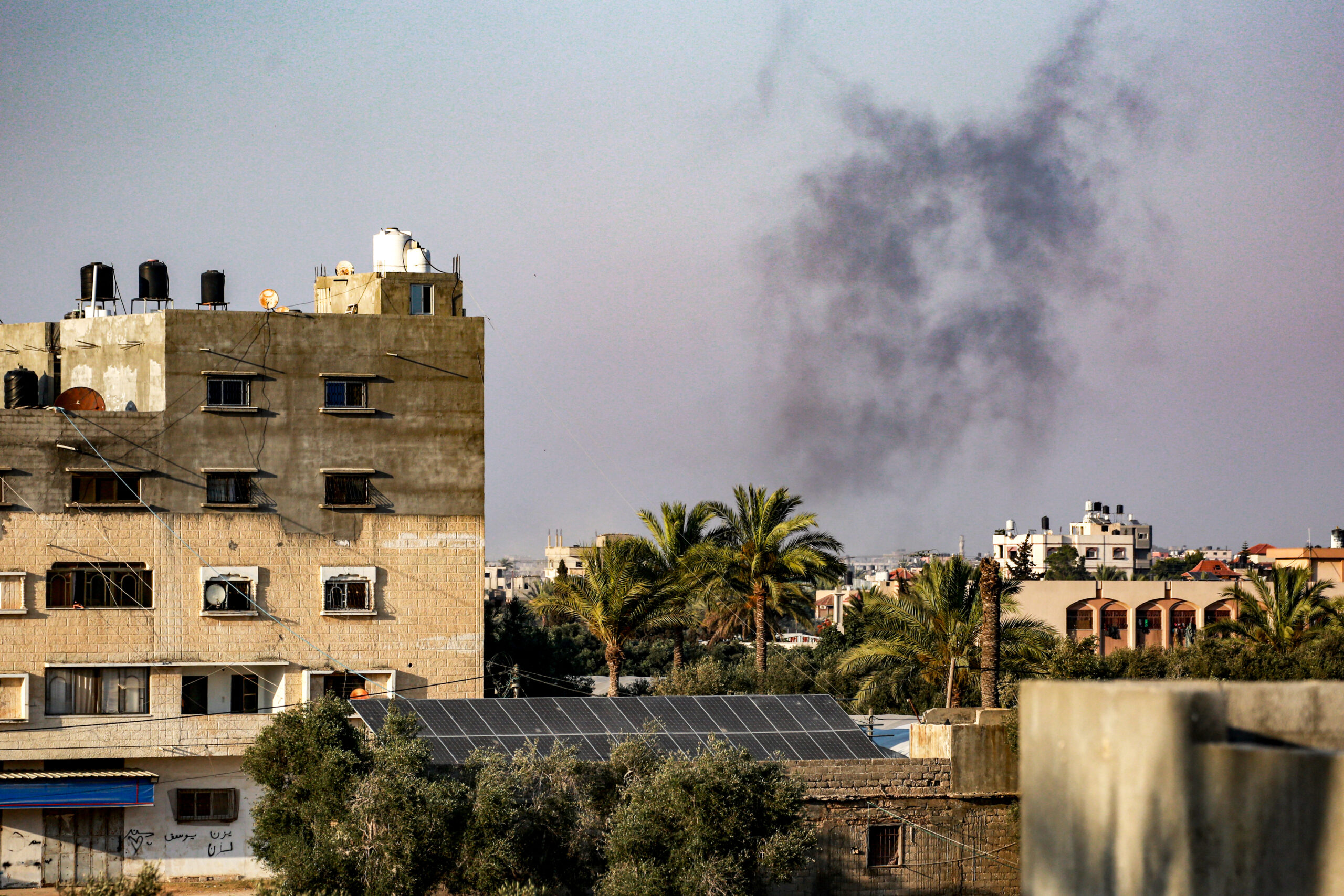Quest for Mideast Peace: Truce Efforts Amid Conflict
As the Middle East conflict intensifies, global powers and regional mediators intensify their efforts to broker a ceasefire between Israel and Hamas.
Published June 06, 2024 - 00:06am

Image recovered from cebudailynews.inquirer.net
Heavy fighting rocked Gaza on Tuesday after G7 and Arab powers urged both Israel and Hamas to agree to a truce and hostage release deal outlined by US President Joe Biden.
Moderator Qatar reported skepticism around statements from both parties but confirmed ongoing work on proposals to secure a ceasefire.
Meanwhile, the White House aimed to cement the three-phase roadmap via a UN Security Council resolution, with Biden affirming Israel's readiness to implement the ceasing of hostilities and the urgency for Hamas to follow suit.
This position was met with criticism from senior Hamas officials, accusing Israel of delaying negotiations for a truce.
The conflict has already extracted a steep human toll, with heavy casualties and significant destruction across Gaza.
International pressure intensifies as the G7 and regional countries like Saudi Arabia, the UAE, and Jordan, back Biden's proposal, calling for an 'enduring end to the crisis'.
UN Middle East envoy Tor Wennesland and UN human rights chief Volker Turk underscored the urgency to support the plan, highlighting the escalating cost in human lives.
As operations in Gaza continue, with Israeli efforts focused on rooting out Hamas military capabilities, tensions rise along the Israel-Lebanon border, where rockets and drones launched from Lebanon have ignited several wildfires.
The CIA director, William J. Burns, engaged in talks with Qatari and Egyptian officials, aiming to align Israel and Hamas closer to a ceasefire, amidst public oscillation by Israeli Prime Minister Benjamin Netanyahu between engaging with ceasefire terms and continuing military action to eliminate Hamas.
Simultaneously, discussions regarding the future governance of Gaza emerge. Israeli Defence Minister Yoav Gallant reiterated that Hamas's continuity in power is unacceptable, suggesting measures to install an alternative government.
The complexity extends with Netanyahu signaling readiness for 'very intense action' against Hezbollah in Lebanon, amplifying fears of the conflict broadening regionally.
As strategies to restore security in the affected areas evolve, the international community observes the situation with a combination of concern and hope for a diplomatic resolution that might bring enduring peace to the region.
The recent conflict in Gaza has seen an international call for peace, with President Joe Biden's truce and hostage release initiative gaining traction among world leaders. In this delicate moment, every effort is being made to find a common ground for ceasefire. However, the complexity of the situation is evident as opposing narratives and mutual distrust continue to challenge the peacemaking process.
Tuesday's heavy clashes signal a sharp escalation in tensions, despite the global community's backing of Biden's ceasefire proposal. The G7, joined by powerful Arab nations, has thrown its collective weight behind the American president's three-phase roadmap. The roadmap outlines key steps needed to achieve and maintain peace, beginning with an immediate cessation of hostilities, followed by a comprehensive negotiation framework and eventual disarmament of militant factions.
Adding to the voices for peace, the European Union's foreign policy chief, Josep Borrell, expressed deep concern over the potential for a further humanitarian crisis. Borrell emphasized the importance of opening corridors for humanitarian aid and the rebuilding of Gaza's critical infrastructure, destroyed amidst the fighting. He called for the international community to support not just a ceasefire, but the provision of urgent humanitarian relief to the Palestinian civilian population affected by the conflict.
Amidst this, diplomatic efforts continue to unfold in the background. Notably, Qatar has been actively mediating between Israel and Hamas, acting as a link that could be pivotal to bridging the gap between the two sides. Qatar's foreign minister has been in constant communication with his counterparts, pushing for a peaceful resolution that respects the sovereignty and security concerns of all involved.
Within Gaza, the situation remains dire. Medical facilities are overwhelmed, and the infrastructure has been battered, leaving hundreds of thousands without access to electricity or clean water. Humanitarian organizations such as the Red Cross and UNICEF have appealed for immediate access to the enclave to provide essential services and prevent a deepening of the humanitarian disaster.
As part of the international response, emergency aid convoys have been mobilized, and donors have pledged millions to assist with immediate relief and longer-term reconstruction efforts. These contributions reflect a collective understanding that, beyond the ceasefire, there is a profound need for rebuilding and reconciliation efforts to address the underlying causes of the conflict.
However, the path to peace is fraught with challenges. Militant factions within Gaza have significant influence, and their commitment to a ceasefire remains precarious. Likewise, Israeli political dynamics, particularly the stance of Prime Minister Netanyahu and his government, add layers of complexity to ceasefire negotiations. Netanyahu's government faces internal pressure to deliver a decisive blow to Hamas, making the prospect of de-escalation politically sensitive.
On the horizon, the role of the United Nations and its agencies is becoming ever more critical. The UN Security Council's potential endorsement of President Biden's roadmap could add significant weight to the ceasefire calls. Moreover, UN agencies are poised to lead humanitarian and reconstruction efforts should a ceasefire allow. The UN's long-term strategic framework for Gaza includes not only reconstruction and humanitarian aid but also the support for economic development and governance reforms deemed essential for a sustainable peace in the region.
In these tumultuous times, the eyes of the world remain fixed on Gaza, with the hope that the current cycle of violence may give way to a lasting resolution. As diplomatic efforts intensify, there is an understanding that any peace must be inclusive, addressing the needs and rights of Palestinians and Israelis alike, to prevent the resurgence of hostilities in the future. The coming days will be critical in determining whether the international community's push for peace can turn the tide of conflict towards a landscape of calm and stability in the Middle East.







